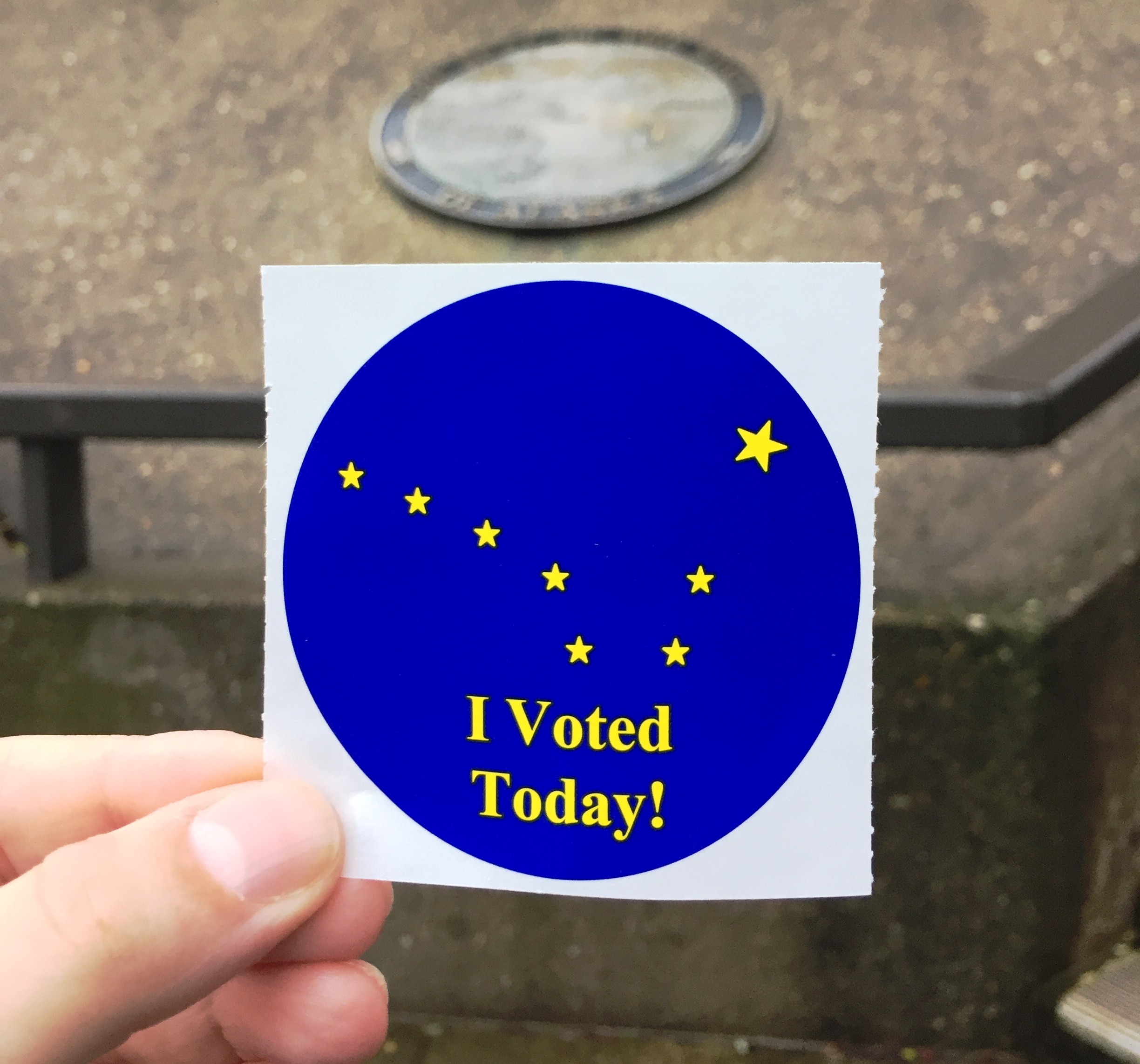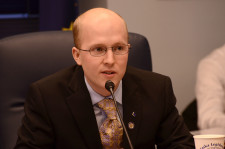
In Alaska it’s illegal to “exhibit” a picture of a marked ballot. Sharing a ballot selfie isn’t a criminal offense as in some states, but it is technically grounds for invalidating that vote.
Now, Alaska may be joining 22 other states who have legalized ballot selfies as a form of political speech.
On Oct. 27, 2016, former Alaska Governor Sarah Palin expressed her support for presidential candidate Donald Trump by posting a picture of her ballot on Facebook. The picture got 17,000 reactions, 560 shares and 616 comments.
It also generated news articles questioning whether Palin had violated state law.

State Rep. Jonathan Kreiss-Tomkins, D-Sitka, thinks that it’s time for the so-called “ballot selfie” to be recognized as a form of political speech in Alaska.
“Ballots and voting are, in a certain sense, an expression of what your view of society should be, in terms of who you believe in electing in order to sort of effect that vision of society,” he said. “I think that’s an incredibly important form of speech and should be free and should be protected.”
The 27-year-old state representative is sponsoring House Bill 7, which would make it legal to share ballot selfies, as well as pictures of marked ballots such as Palin’s.
Josie Bahnke, director at the state’s Division of Elections, said that Alaska’s current law is both unclear and impossible to enforce, and she’s supports the ballot selfie bill.
“For the Division, we support clarifying language,” she said. “This is just going to give us clarification to give direction on ballot selfies, and of course, we support any legislation that promotes the act of voting.”
In states where they do enforce bans on ballot selfies, such as New Hampshire and Colorado, federal courts have ruled that ballot selfies are protected under the First Amendment.
Rick Hasen, a professor at the University of California Irvine who specializes in election law, is a strong opponent of the legalization of ballot selfies.
He said concerns about vote buying and coercion are still relevant.
“We’re not worried so much about people taking pictures and posting it on social media and then selling their vote, but people taking those pictures and just sharing them privately with whoever might be coercing them or paying them,” he said. ” A law doesn’t have to be perfect in order for it to be constitutional, and so even if it’s not perfect, it could be a useful way, even if not a perfect way, to deter such conduct.”
Kreiss-Tomkins acknowledged concerns about vote buying in his bill sponsor statement, but he thinks his bill will be well-received.
“I may be more familiar and exposed to the way people express themselves online then perhaps some of my colleagues, but I remain pretty confident that all of my colleagues will find the current law pretty dumb and want to change it, because it is. So, I suspect that this will have multi-generational appeal,” he said with a laugh.
For him, the legislation is simply a matter of keeping up with the times.
“I think on election day, or even prior to election day with absentee ballots, I would say my Facebook feed is pleasantly populated with ballot selfies, and the first time I was on the ballot I took a photo … it it was a meaningful memento to me. So, here I am, a criminal. I’m trying to emancipate myself,” he joked.
Kreiss-Tomkins also is working with state election officials on an amendment that would address concerns about electioneering.
The House State Affairs Committee plans to hold another public hearing on the bill.
